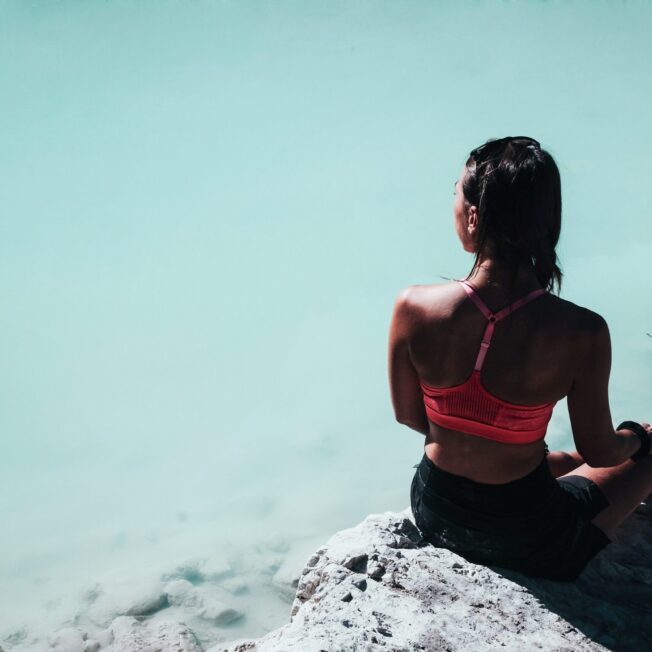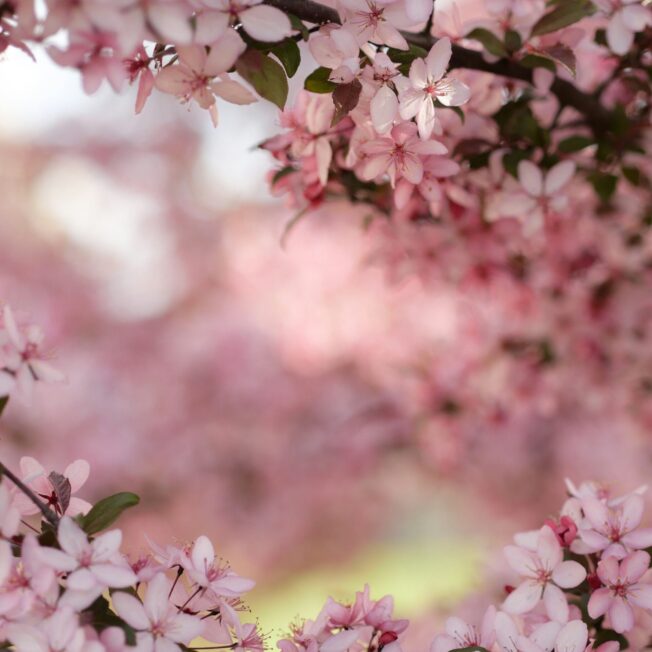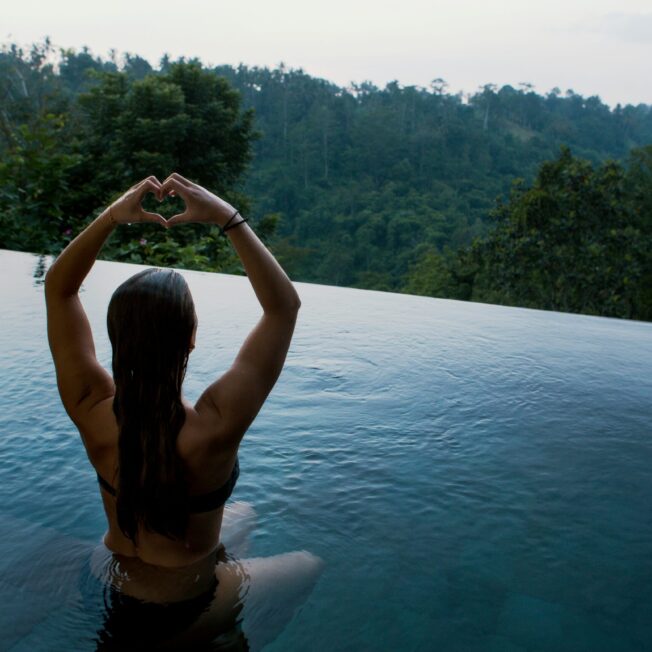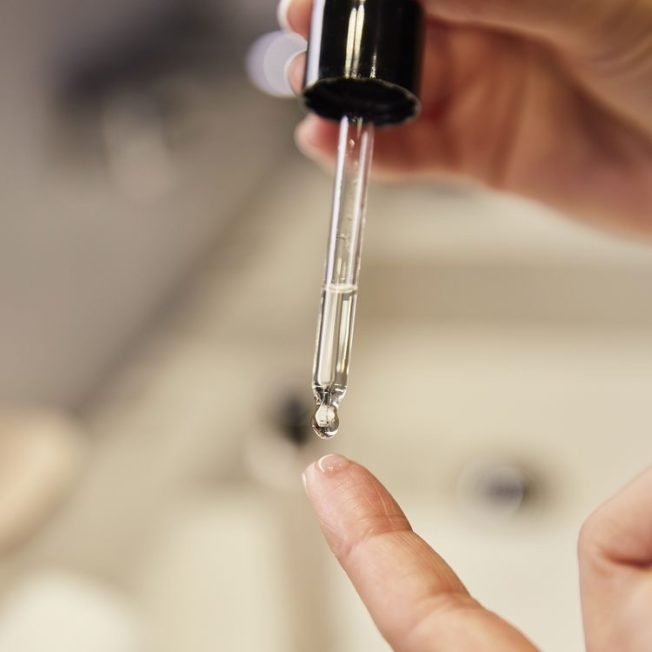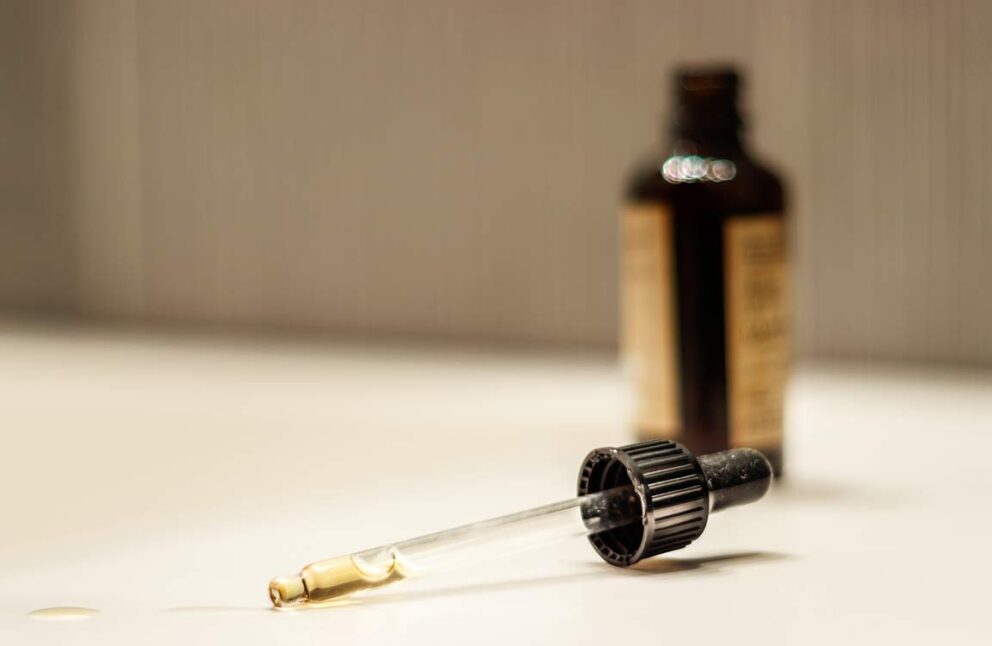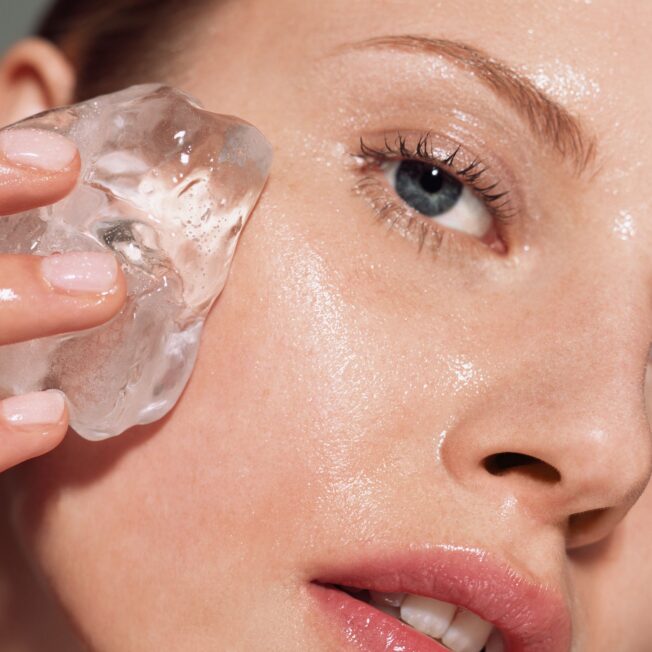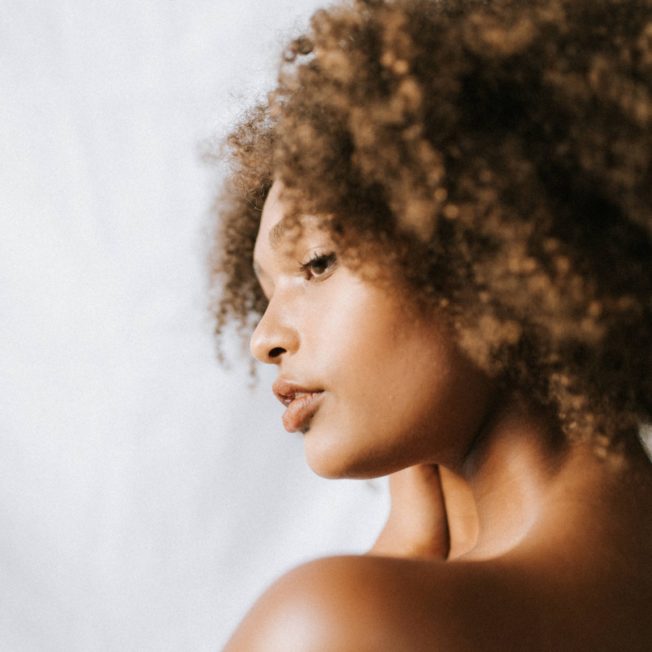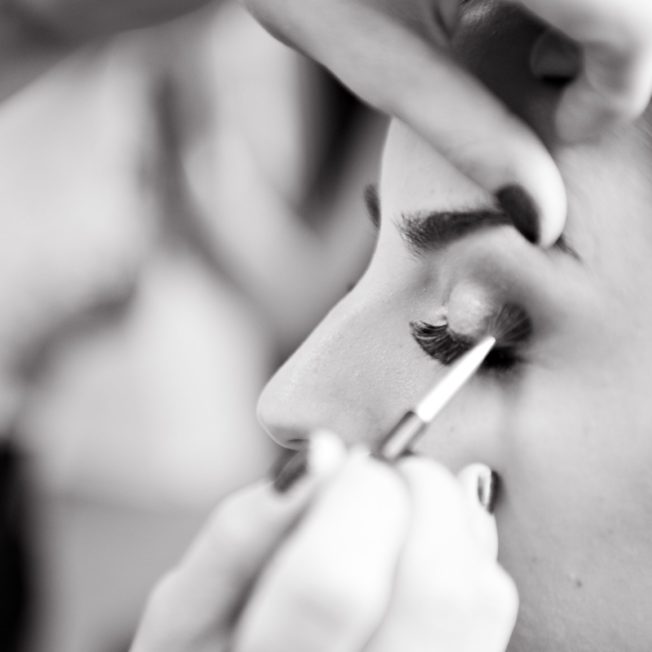Is your skin stressed out? It might just need a hit of CBD. There’s no question that CBD — that stands for cannabidiol, a substance derived from marijuana and hemp plants and a relative of THC (the part of the plant responsible for getting you “high”) — is taking over the skincare space right now. You can find it in countless serums, moisturizers, and masks; but its quick rise to fame has left consumers with a lot of questions. Does CBD do anything for the skin, or it is all hype? What’s the difference between hemp and CBD? Will it get me high?
If you’ve been wondering whether the CBD eye cream you’ve been eyeing is really worth the money, read on. We’re debunking every myth about the controversial substance and shining some light on why CBD is more than just a passing phase — it’s a modern must-have.
What Is CBD?
CBD is a substance extracted from plants in the cannabis family; mainly, marijuana and hemp. It’s completely different than THC, the substance in marijuana that gives you that fuzzy feeling, and has no psychoactive effects. So, no, using CBD won’t get you high. It will, however, ease anxiety and promote a sense of calm.
What’s The Difference Between Hemp CBD and Marijuana CBD?
Not much, really. CBD derived from the marijuana plant and CBD derived from the hemp plant are nearly identical; but many companies choose to harvest from hemp for legal reasons. “Due to the complicated gray area of CBD legality, companies are relabeling their products as ‘hemp,’ only so that they don’t run into any issues selling them on the mass market via places like Amazon and WalMart,” Alli George, the marketing manager for CBD retailer Daintri, said, “In these cases, the products are the same.”
There is a difference between hemp-derived CBD and plain old hemp, though. If you see a product promoting its “hemp extract,” then it’s likely that “these products will have a full spectrum of other plant matter from the hemp plant and a lower, often times insignificant, amount of actual CBD,” George said. Look for the words “CBD” or “hemp-derived CBD,” alongside milligram content information, to make sure you’re buying skincare products infused with actual CBD.
Why Is It Good For My Skin?
This is one case where the hype is warranted — CBD is incredible for your skin. “Its powerful antioxidant abilities are stronger than Vitamin C, E, and A or Omega-3 fatty acids,” a representative for HORA Skincare, a brand that features CBD in many of its products, explains. “Cannabinoid receptors are located throughout our body, which allows CBD to act as a therapy to counteract dry skin, leaving a youthful glow.”
On top of that, CBD contains all 21 known amino acids. Amino acids are the building blocks of protein, and proteins make up the collagen and elastin in our skin (both of which are responsible for helping us look hydrated and young). By adding a dose of CBD to your skincare routine, you give your skin the tools it needs to rebuild its natural collagen and elastin stores — leaving you looking more radiant by the day.
Finally, because it’s full of fatty acids and vitamins, CBD can act as a shield against environmental pollution. When we come into contact with free radicals (pollution molecules from smoke, industrial emissions, and more), these molecules interact with our skin in a way that damages the barrier and dries it out. With CBD, though, free radicals are neutralized and your skin is essentially protected from pollution damage.
Can I Eat It?
Yes, taking CBD vitamins or tinctures can actually help keep skin healthy from the inside out. (Just be sure the product you’re taking has been produced specifically as an ingestible.) When CBD enters the body, it eases feelings of stress and anxiety and can lower levels of the hormone cortisol — also known as the stress hormone. Since elevated cortisol has been shown to trigger stress-induced skin issues and cause the premature breakdown of collagen, keeping yourself stress-free on the inside can have some beautiful benefits on the outside.


